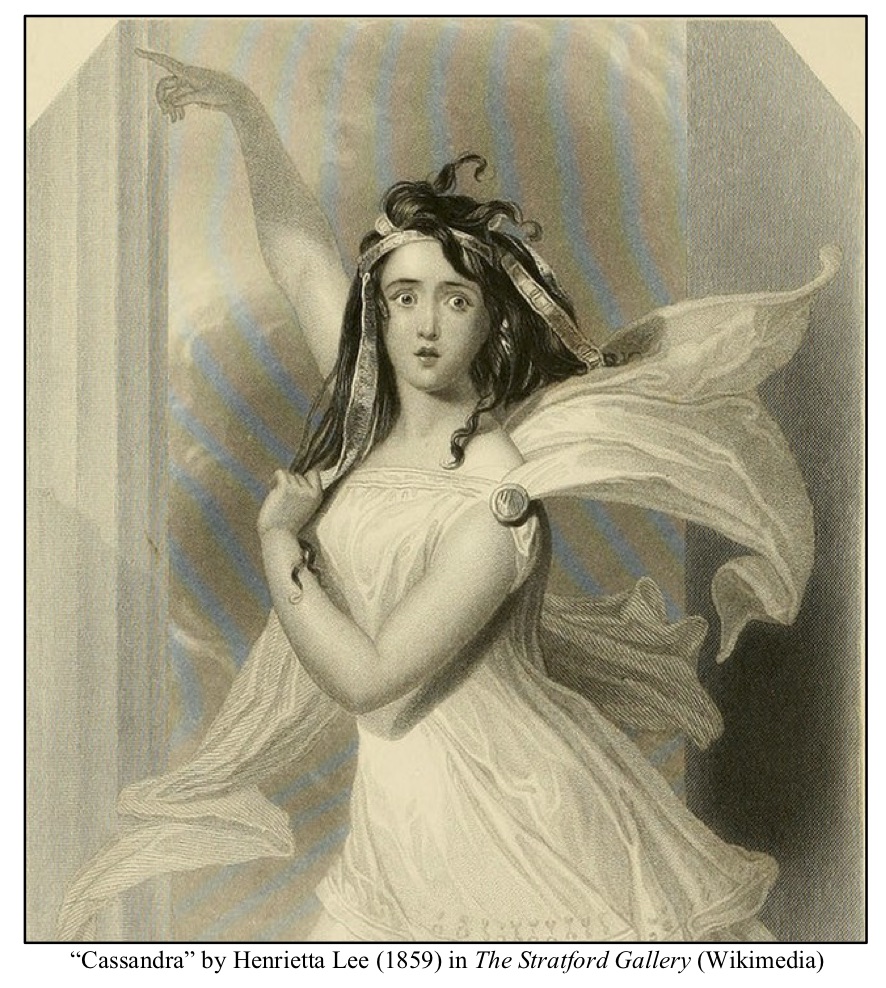Like it or not, the novel coronavirus is still with us…

Before the Trojan war was ignited by the Trojan Prince Paris abducting the Greek Queen Helen (which precipitated the launch of those thousand ships and an endless bloody war), the clairvoyant Cassandra appeared before the Trojans and said that the abduction of Helen was a seriously bad idea. She also warned the Trojans about a ginormous horse that would bring death and destruction within the walls of Troy. In the timeless tradition of everyone who hears bad news, the Trojans had Cassandra banished for being such a downer. She was lucky they didn’t have her killed. No one embraces the bearer of bad news, nor the bad news that they bear.
So stand back. This is probably going to be one of those Cassandra moments.
Yes, we are transitioning from treating Covid as a pandemic disease to treating it as an endemic disease. And that transition will work, unless and until the novel coronavirus decides to mutate into a new variant that chases us back into our curve-flattening shelters. But Covid’s endemic status does not mean that it has stopped killing and maiming us. The novel coronavirus is still killing about 1,000 people a day in the world, and its tally of still-breathing victims cannot be gauged, due to the woefully incomplete knowledge we have about the virus’s long-term effects.
Let’s visit a few of the findings about Covid’s consequences that have emerged since Hollow Crown of Fire was submitted for publication:
The novel coronavirus is viable and active in the bodies of “recovered” Covid patients, long after they test negative on PCR analysis.[1] This is reminiscent of the herpes zoster virus, which manifests with one set of symptoms when it first infects us as chicken pox, and then lies dormant but viable in our spinal cords until it resumes its active form as the dread affliction of shingles later in our lives. To quote a line from Hollow Crown of Fire, “Few things in nature go gentle into that good night of oblivion…especially the really little things.”
The novel coronavirus appears able to reactivate the virus that has been deemed latent (dormant) in people who have “recovered” from chronic fatigue syndrome, and perhaps it can do the same with other latent viruses. This has serious implications for many people, including those who have ostensibly recovered from the viral diseases manifesting as Epstein-Barr (EBV) and Guillain-Barré syndrome.[2]
Infection by novel coronavirus predisposes the “recovered” Covid patient to be at much greater risk for developing neurologic syndromes such as Parkinson’s disease and Alzheimer’s disease.[3] In the latter case, this may be related to a greater presence of ACE2 proteins in Alzheimer’s brains, providing greater opportunity for the coronavirus to affect brain tissue as it replicates in ACE2 cells.[4]
I’m guessing that you can now empathize with Trojans’ decision to banish Cassandra and reject her warnings, despite the dismal foolishness of those decisions. I mean, who likes to embrace bad news? Not me! But facts are always friendly, in the end.
Someone should have told that to the Trojans.
Spoiler alert... The Trojans did live, and die, to regret the banishment business. The horse was full of Greek warriors, the city of Troy was leveled, and Helen went home with the Greeks. Facts are friendly. Even the ugly ones. Maybe especially the ugly ones. Just sayin’...
We may want to forget the coronavirus, but the coronavirus has not forgotten us.
[1] Bussani R. 2023. Persistent SARS-CoV-2 infection in patients seemingly recovered from COVID-19. The Journal of Pathology. doi: https://doi.org/10.1002/path.6035 https://onlinelibrary.wiley.com/doi/10.1002/path.6035
[2] Apostolou, E., et al. (2022) Saliva antibody-fingerprint of reactivated latent viruses after mild/asymptomatic COVID-19 is unique in patients with myalgic-encephalomyelitis/chronic fatigue syndrome. Frontiers in Immunology. doi.org/10.3389/fimmu.2022.949787.
[3] Albornoz, E. A., et al. (2022) SARS-CoV-2 drives NLRP3 inflammasome activation in human microglia through spike protein. Molecular Psychiatry. doi.org/10.1038/s41380-022-01831-0.
[4] Louise, R. et al. (2023) "Higher Angiotensin I Converting Enzyme 2 (ACE2) levels in the brain of individuals with Alzheimer’sdisease". bioRxiv. doi: 10.1101/2023.01.17.524254. https://www.biorxiv.org/content/10.1101/2023.01.17.524254v1

